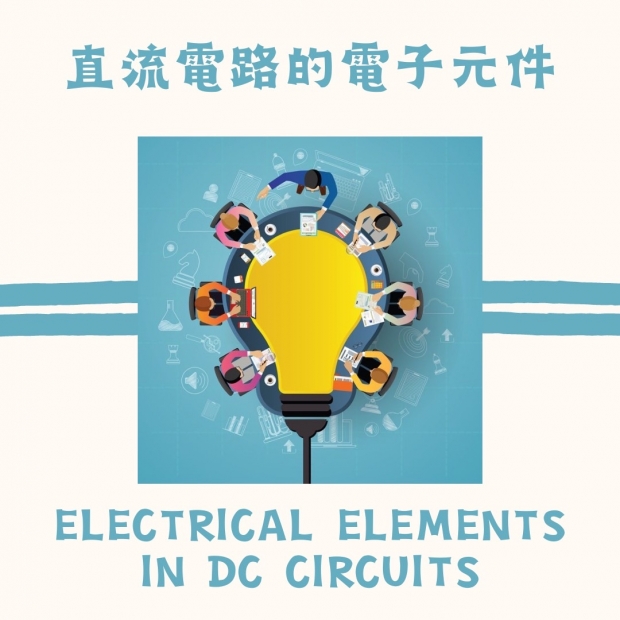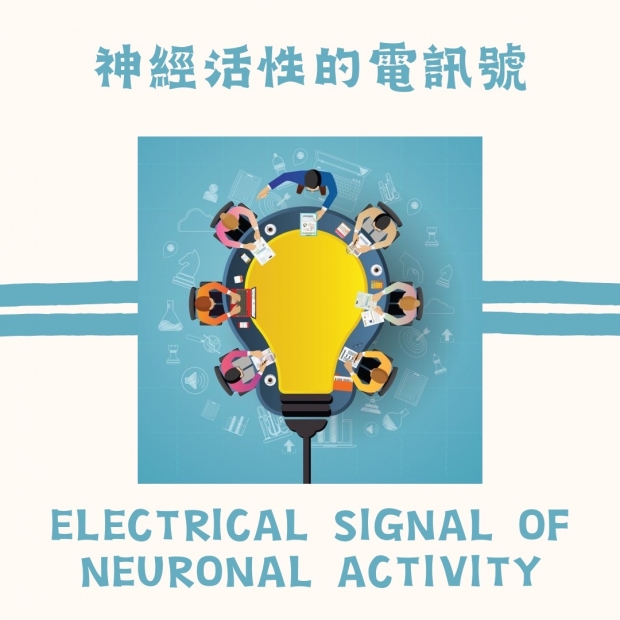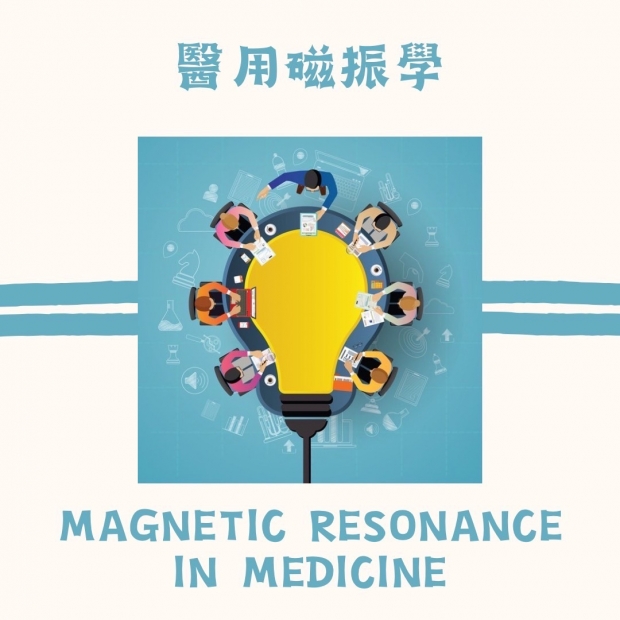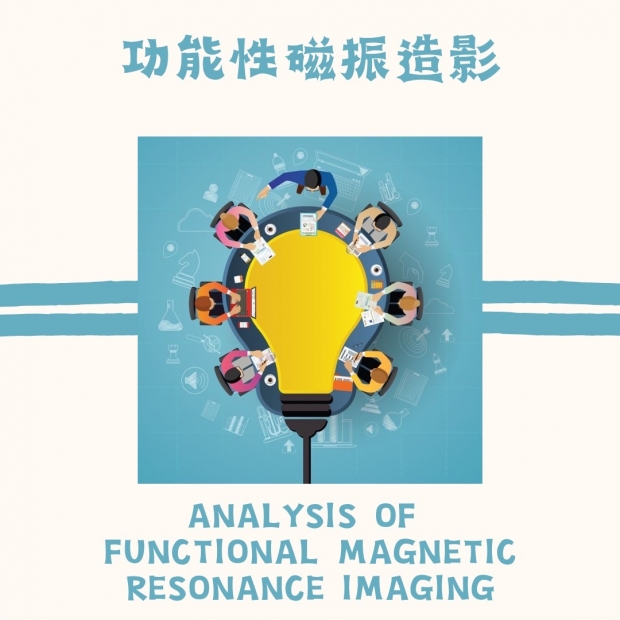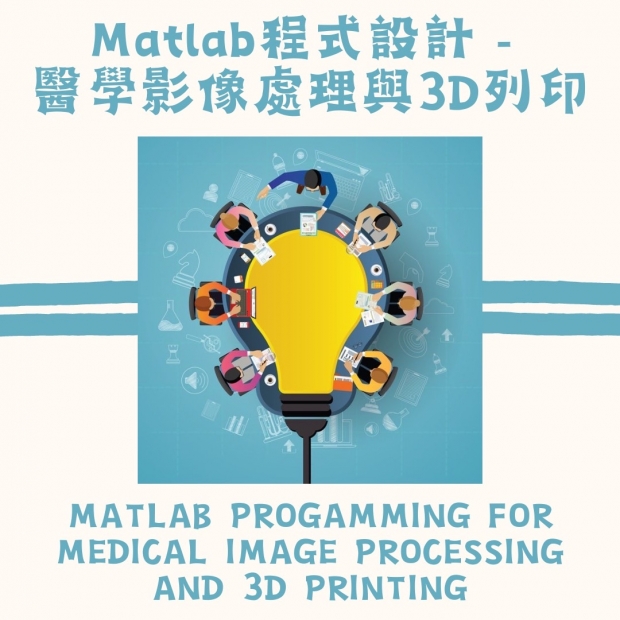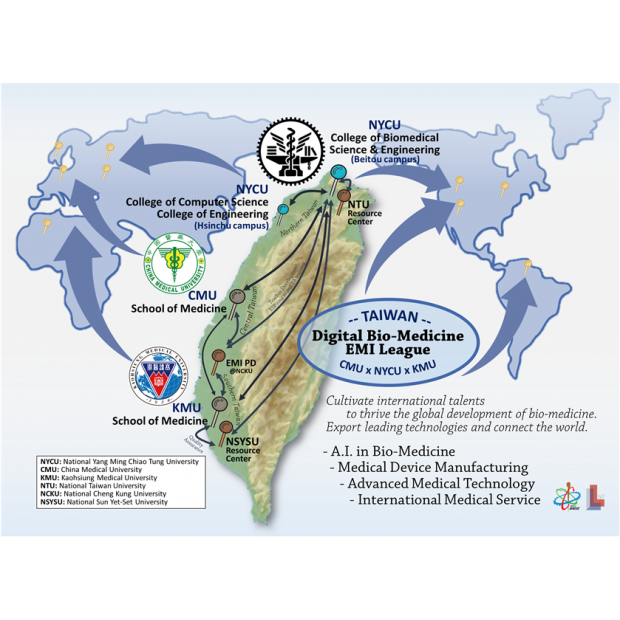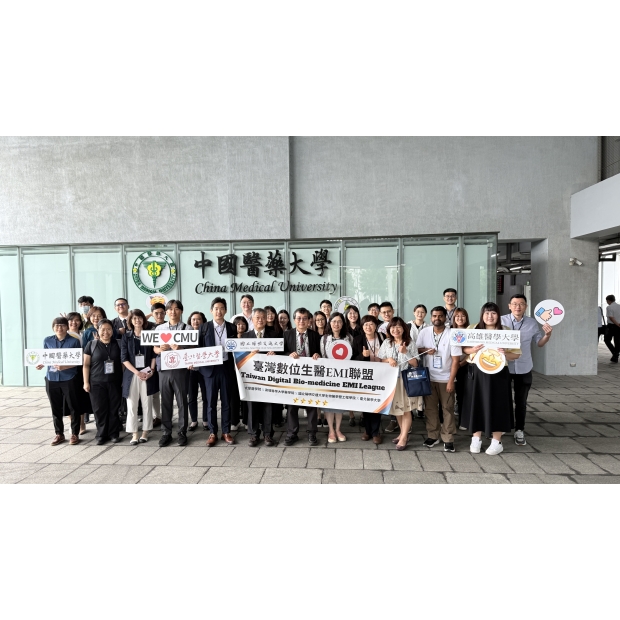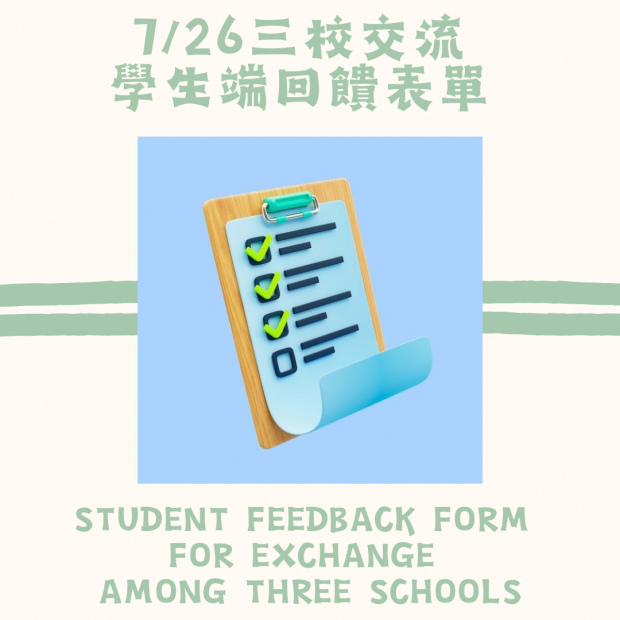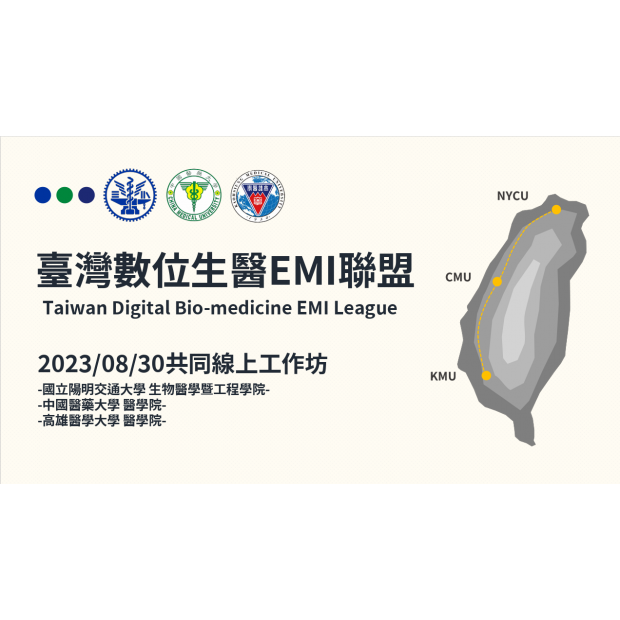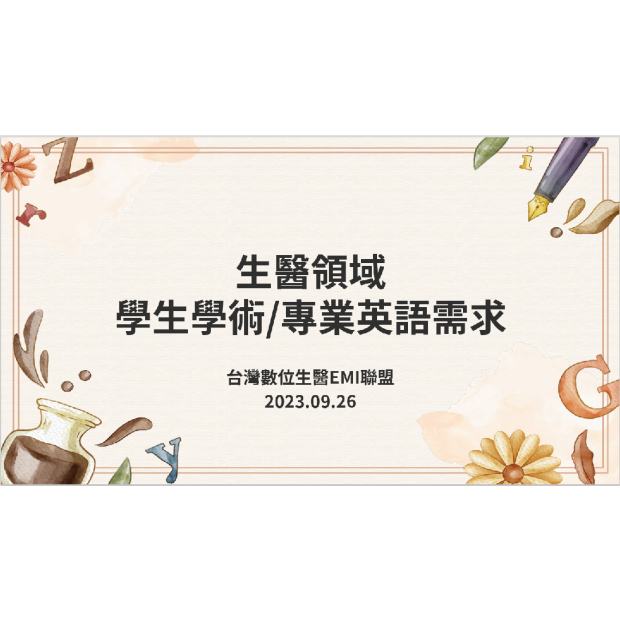Initiative for Taiwan Digital Bio-medicine EMI League
Initiative for Taiwan Digital Bio-medicine EMI League
During the past year, we have been actively exchanging experiences and dialogues with other universities to explore the development strategies suitable for nurturing bilingual talents in the field of bio-medicine and to expand the effectiveness of the BEST program. In May 2023, College of Biomedical Science and Engineering at National Yang Ming Chiao Tung University (NCYU, northern Taiwan), as the initiator, collaborated with the College of Medicine at China Medical University (CMU, central Taiwan) and the College of Medicine at Kaohsiung Medical University (KMU, southern Taiwan) to form the Taiwan Digital Bio-medicine EMI League (Figures 1 and 2). We have a clear goal to share experiences in implementing bilingual education and to plan a development blueprint and common strategies for the growth of bilingual talents in Taiwan.
To indicate the agreement of the three colleges, the description of the formation and action plan of Taiwan Digital Bio-medicine EMI League will be presented here and in the proposal of the other two colleges.
Figure 1. Dialogue between NYCU, CMU, and KMU to reach consensus on joint development of EMI strategy in the biomedical field.
Figure 2. Goal, member, and focused topic of Digital Bio-Medicine EMI League in Taiwan.
The action plan of Taiwan Digital Bio-medicine EMI League includes:
(1) Formation of the executive and steering committees (July-August 2023): To set the specific development direction and implementation steps, especially focusing on the characteristics of the field of digital biomedicine, and to consider the suitable EMI development strategy for Taiwan.
(2) Bio-medical teacher development and empowerment (2023-2025): With the supports from EMI PD Center (36-hour training) and HEAT at NYCU (60-hour training with international certificate of Higher Education Academy Fellowships), we will be able to empower our teachers with regard to the pedagogy, EMI skills, and technology-assisted learning.
(3) Development of ESP material and course for bio-medicine (September 2023 – July 2024): We will work with the EMI PD Center to develop updated ESP materials and curricula based on the previously developed ESP materials. Through the collaboration between biomedical faculty and language teachers, we will develop the updated ESP materials focusing on the topics of “biotechnology” and “health and medical care” to facilitate students’ smooth transition to the EMI curriculum.
(4) EMI class observation and quality assurance (2023-2025): EMI curriculum in biomedical field has its own characteristics. We will highlight the skills for medical technology, patient communication, teamwork, and critical thinking. The assessment checklist of biomedical EMI will further highlight the student comprehension and effective communication during the teacher-student and student-student interaction. The analysis of class quality will be provided to the EMI teachers for the further improvement.
(5) Inter-university teacher community (2023-2024): We will build an inter-university teacher community composed of teachers from NYCU, CMU, and KMU and apply for the subsidy to the NTU EMI Resource Center. We will actively manage this teacher community and have monthly online discussion to facilitate the networking and strengthen the collaboration.
(6) Regular workshops and annual summit for league members (2023-2025): We will hold regular workshops (in-person or online) for faculty and students to enhance EMI teaching and learning. In addition, an annual summit, Summit for Digital Bio-Medicine EMI League, will invite all member colleges/universities and support centers to participate and share their experience. An action plan for the next year will be presented and discussed during the summit.
(7) Growth and improvement (2023-2025): We will continue to invite colleges/universities in the field of bio-medicine to expand the benefits and improve the development strategy. We will also arrange the international dialogue with partner universities to promote Taiwanese development and talent employment.
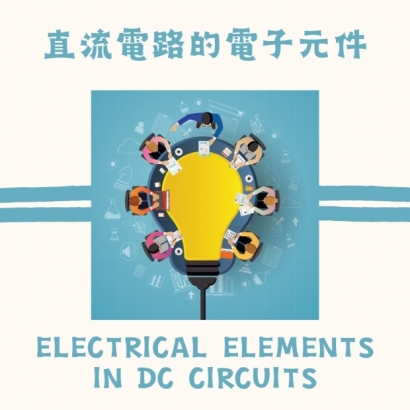 醫放系|高瑀絜|直流電路的電子元件
醫放系|高瑀絜|直流電路的電子元件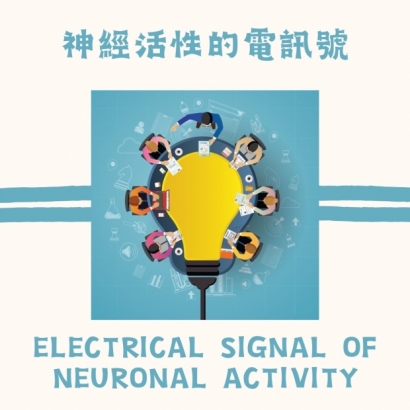 醫放系|高瑀絜|神經活性的電訊號
醫放系|高瑀絜|神經活性的電訊號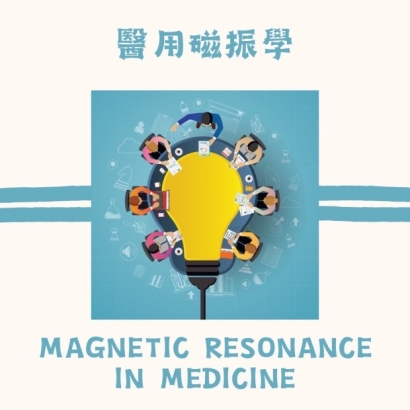 醫放系 | 盧家鋒 | 醫用磁振學
醫放系 | 盧家鋒 | 醫用磁振學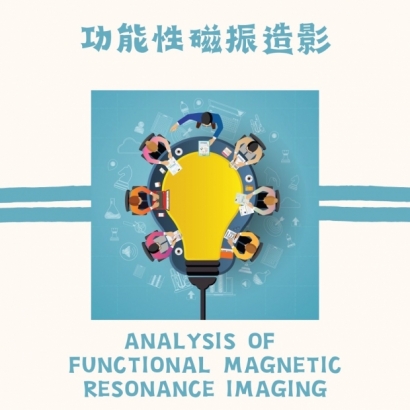 醫放系|盧家鋒|功能性磁振造影
醫放系|盧家鋒|功能性磁振造影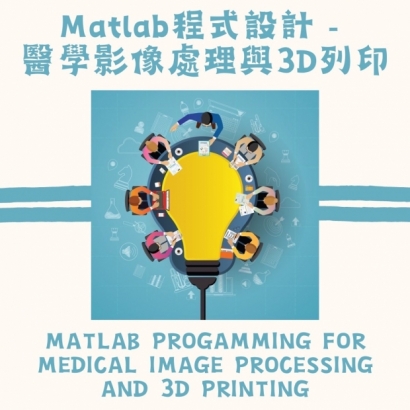 醫放系|盧家鋒|MATLAB進階程式設計與專題實作
醫放系|盧家鋒|MATLAB進階程式設計與專題實作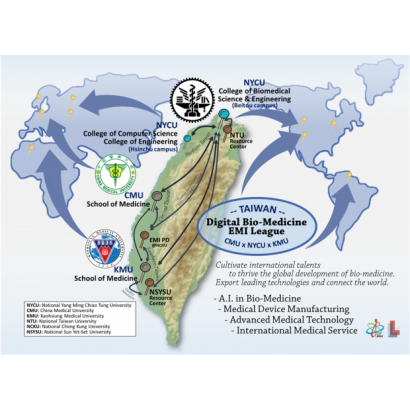 Initiative for Taiwan Digital Bio-medicine EMI League
Initiative for Taiwan Digital Bio-medicine EMI League 2025/07/09 臺灣數位生醫EMI聯盟 實體交流會 | Taiwan Digital Bio-medicine EMI League
2025/07/09 臺灣數位生醫EMI聯盟 實體交流會 | Taiwan Digital Bio-medicine EMI League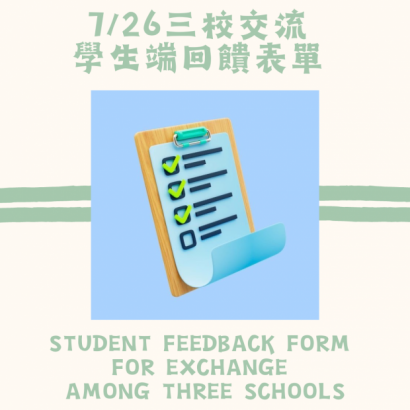 2023/07/26三校交流 學生端回饋表單 Student Feedback Form for Exchange Among Three Schools
2023/07/26三校交流 學生端回饋表單 Student Feedback Form for Exchange Among Three Schools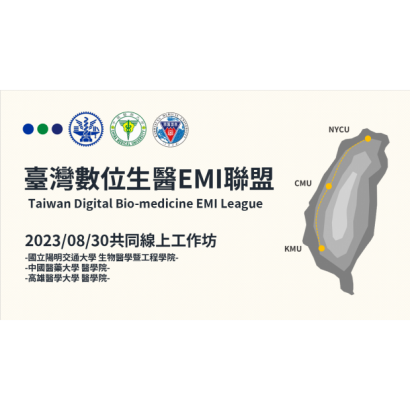 2023/08/30 臺灣數位生醫EMI聯盟共同線上工作坊 | Taiwan Digital Bio-medicine EMI League
2023/08/30 臺灣數位生醫EMI聯盟共同線上工作坊 | Taiwan Digital Bio-medicine EMI League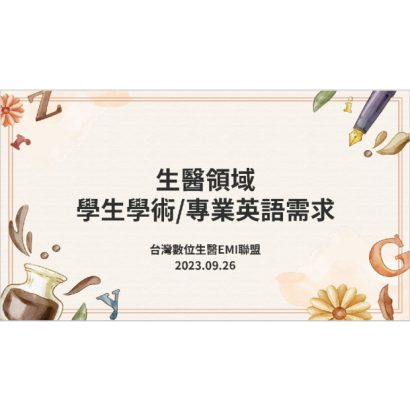 2023/09/26 臺灣數位生醫EMI聯盟共同線上工作坊 | Taiwan Digital Bio-medicine EMI League
2023/09/26 臺灣數位生醫EMI聯盟共同線上工作坊 | Taiwan Digital Bio-medicine EMI League
